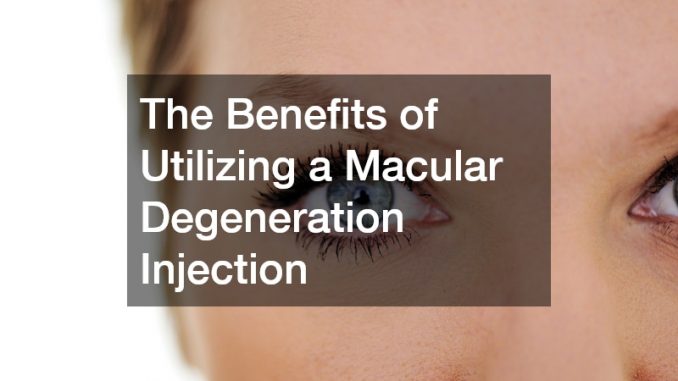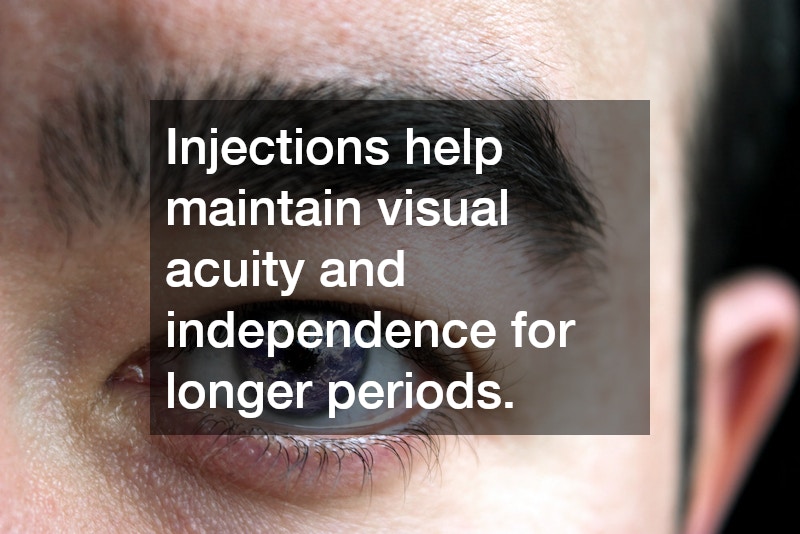

Macular degeneration is a leading cause of vision loss, particularly in older adults, impacting daily activities and overall quality of life. As a progressive eye condition, its effects can be particularly daunting. However, advancements in treatment options, such as macular degeneration injections, offer hope and improved outcomes for those affected. In this post, we explore the benefits of these injections, aiming to provide an insightful overview of their efficacy and impact.
One of the primary benefits of using a macular degeneration injection is the potential to slow the progression of the disease. Many current medications used in these injections focus on reducing the growth of abnormal blood vessels and leakage that contribute to vision problems. Studies have shown that consistent treatment can not only preserve existing vision but, in some cases, even improve sight, providing a significant enhancement in the quality of life for patients. By targeting the underlying causes of macular degeneration, injections help maintain visual acuity and independence for longer periods.

Another notable advantage of macular degeneration injections is the adaptability of the treatment to individual patient needs. This personalised approach ensures that therapy is specifically tailored to the severity and progression of the patient’s condition. For many, this means fewer hospital visits and reduced healthcare costs over time. While these injections do not represent a cure, they significantly mitigate symptoms and offer a promising path for managing the condition effectively alongside other treatment methodologies.
For patients, the emotional and psychological relief associated with slowing the decline in their vision cannot be underestimated. Vision loss, particularly from conditions like macular degeneration, can be distressing and isolating. Being able to continue engaging in daily activities, from reading to recognising faces, fosters a sense of normalcy and independence. Injections that help to stabilise or even improve vision provide patients with not just physical benefits but also mental well-being, which is essential when dealing with progressive diseases. The ability to rely on one’s sight for longer periods often translates into greater confidence in navigating day-to-day tasks and less dependence on family or carers for assistance.
Furthermore, macular degeneration injections are often part of a broader treatment plan. They can be combined with other interventions like lifestyle changes, dietary supplements, and regular eye check-ups. For instance, incorporating an antioxidant-rich diet or protecting eyes from excessive ultraviolet (UV) light exposure can complement the injections and enhance overall eye health. This integrative approach addresses multiple aspects of the condition, ensuring that patients are not solely dependent on injections but have a comprehensive plan to manage their vision health over the long term.
While macular degeneration injections are widely recognised for their benefits, it’s important to acknowledge potential challenges. Some patients may experience side effects such as eye discomfort, redness, or swelling after treatment. These side effects are usually mild and temporary, but it’s crucial for patients to maintain an open dialogue with their healthcare provider to monitor their response to treatment. Additionally, the need for regular injections, often every four to six weeks, can be daunting for some patients. However, healthcare providers work closely with individuals to adjust treatment schedules as needed, balancing efficacy with patient comfort.
Another consideration is the importance of early detection. The sooner macular degeneration is identified, the more effective treatments like injections can be in slowing its progression. Regular eye exams, particularly for those at higher risk, such as individuals over 50 or those with a family history of the condition, are vital for catching the disease in its early stages. Early intervention can lead to better long-term outcomes, preserving vision and quality of life for longer.
As you can see, macular degeneration injections offer numerous benefits, making them a cornerstone in the management of this eye condition. By slowing disease progression, offering personalised treatment, and providing psychological relief, they serve as a beacon of hope for individuals striving to maintain their vision and improve their quality of life. As research and technology advance, the future holds even more potential for innovative solutions in the fight against macular degeneration. With a proactive and comprehensive approach to eye care, patients can look forward to preserving their vision for as long as possible, enjoying a higher quality of life in the process.